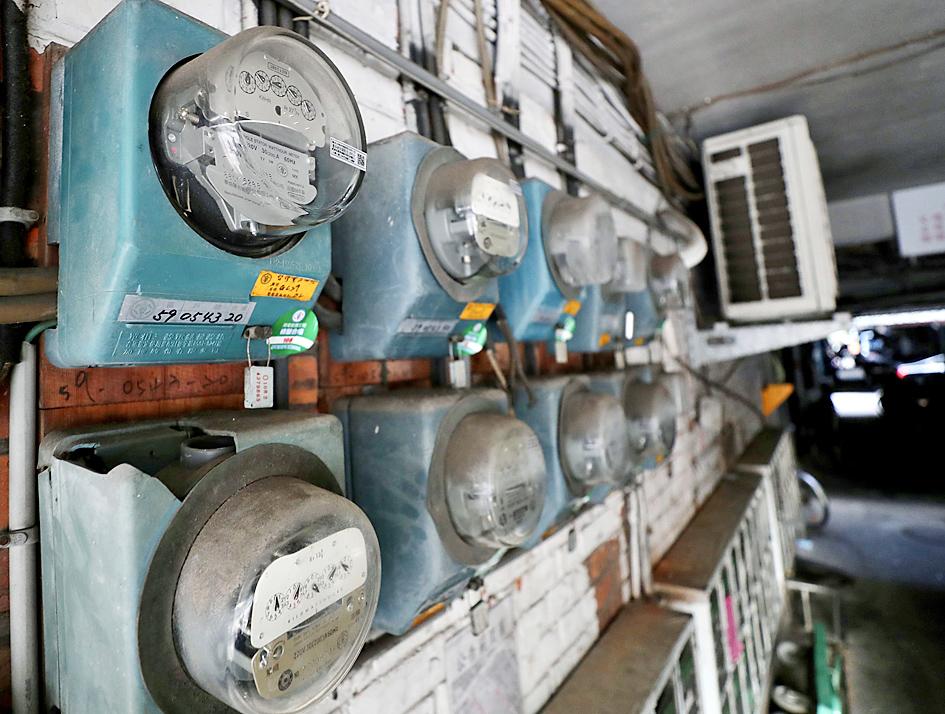The No. 2 reactor at the Guosheng Nuclear Power Plant in New Taipei City’s Wanli District (萬里) experienced a malfunction that triggered an automatic shutdown early yesterday morning, Taiwan Power Co (Taipower, 台電) said.
The exact cause of the incident is still being investigated, but there is no risk of a radiation leak, the state-run utility said.
“While we are still investigating the exact cause, the automatic shutdown was safely executed and there is no danger from radiation,” Taipower spokesman Chang Ting-shu (張廷舒) said.

Photo: CNA
The malfunction occurred at 6:33am, triggering an emergency shutdown, taking 985 megawatts of power offline, Chang said.
The control rods have now been fully lowered into the reactor and Taipower would apply with the Atomic Energy Council for the unit to be restarted as soon as the malfunction is resolved, he said.
However, it would take three days before the reactor reaches maximum output, Taipower said.
“The malfunction took place early in the morning during low power demand and it was possible for us to dispatch our reserve capacity immediately, leading to no loss of power [to the grid],” Chang said. “With the nation’s hydropower system full after the recent rains, we should be able to cope while the Guosheng Nuclear Power Plant’s No. 2 reactor remains offline.”
The operating reserve ratio is expected to remain “green,” or above 10 percent, in the coming days, but might dip into “yellow” territory, or 6 to 10 percent, during nighttime peak periods before the reactor is restarted, Taipower said.
As the mercury spiked close to 38°C, the nation’s electricity consumption reached 38.84 gigawatts (GW) at 1:50pm yesterday, with an operating reserve ratio of 10.17 percent, the company said.
The No. 1 reactor at the Guosheng power plant went offline on July 1 after the facility ran out of space to store spent nuclear fuel.
The No. 2 reactor is expected to keep generating power until March 2023, when its operating permit expires, Taipower said.

Taiwan’s rapidly aging population is fueling a sharp increase in homes occupied solely by elderly people, a trend that is reshaping the nation’s housing market and social fabric, real-estate brokers said yesterday. About 850,000 residences were occupied by elderly people in the first quarter, including 655,000 that housed only one resident, the Ministry of the Interior said. The figures have nearly doubled from a decade earlier, Great Home Realty Co (大家房屋) said, as people aged 65 and older now make up 20.8 percent of the population. “The so-called silver tsunami represents more than just a demographic shift — it could fundamentally redefine the

The US government on Wednesday sanctioned more than two dozen companies in China, Turkey and the United Arab Emirates, including offshoots of a US chip firm, accusing the businesses of providing illicit support to Iran’s military or proxies. The US Department of Commerce included two subsidiaries of US-based chip distributor Arrow Electronics Inc (艾睿電子) on its so-called entity list published on the federal register for facilitating purchases by Iran’s proxies of US tech. Arrow spokesman John Hourigan said that the subsidiaries have been operating in full compliance with US export control regulations and his company is discussing with the US Bureau of

Businesses across the global semiconductor supply chain are bracing themselves for disruptions from an escalating trade war, after China imposed curbs on rare earth mineral exports and the US responded with additional tariffs and restrictions on software sales to the Asian nation. China’s restrictions, the most targeted move yet to limit supplies of rare earth materials, represent the first major attempt by Beijing to exercise long-arm jurisdiction over foreign companies to target the semiconductor industry, threatening to stall the chips powering the artificial intelligence (AI) boom. They prompted US President Donald Trump on Friday to announce that he would impose an additional

China Airlines Ltd (CAL, 中華航空) said it expects peak season effects in the fourth quarter to continue to boost demand for passenger flights and cargo services, after reporting its second-highest-ever September sales on Monday. The carrier said it posted NT$15.88 billion (US$517 million) in consolidated sales last month, trailing only September last year’s NT$16.01 billion. Last month, CAL generated NT$8.77 billion from its passenger flights and NT$5.37 billion from cargo services, it said. In the first nine months of this year, the carrier posted NT$154.93 billion in cumulative sales, up 2.62 percent from a year earlier, marking the second-highest level for the January-September